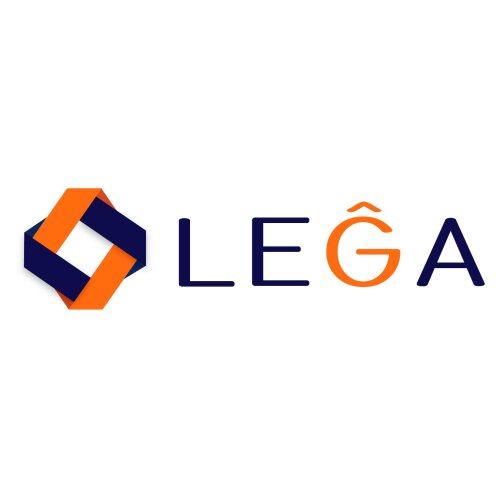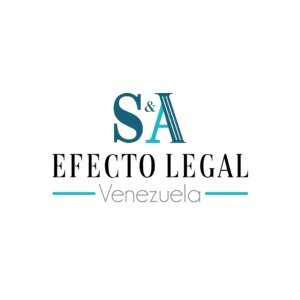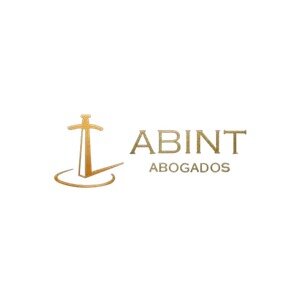Best Communications & Media Law Lawyers in Venezuela
Share your needs with us, get contacted by law firms.
Free. Takes 2 min.
Or refine your search by selecting a city:
List of the best lawyers in Venezuela
About Communications & Media Law in Venezuela
Communications and Media Law in Venezuela encompasses a wide range of legal issues including broadcasting, telecommunications, internet regulations, and freedom of speech. The legal framework is influenced by the Venezuelan Constitution, which guarantees free communication and information as a human right. This field is heavily regulated by government bodies such as the Ministry of Popular Power for Communication and Information (MINCI) and the National Telecommunications Commission (CONATEL). These entities oversee the distribution of broadcast licenses, compliance with content regulations, and internet governance. Understanding the obligations and rights under these regulations is crucial for entities and individuals active in communications and media sectors.
Why You May Need a Lawyer
Individuals and organizations may seek legal assistance in Communications & Media Law for several reasons. Common scenarios include:
- Compliance with broadcasting or telecommunications regulations.
- Intellectual property issues related to content creation and distribution.
- Defending against claims of defamation or misinformation.
- Understanding rights and obligations under media contracts.
- Navigating licensing disputes or renewals for broadcasters.
- Internet service providers handling regulatory compliance or data protection concerns.
- Journalists facing legal challenges regarding freedom of speech or censorship.
- Resolving disputes over media ownership or mergers.
- Content creators seeking guidance on advertising laws and regulations.
- Consumers dealing with media-related consumer protection issues.
Local Laws Overview
Key aspects of Communications & Media Law in Venezuela include:
- Constitutional Provisions: The Venezuelan Constitution enshrines the right to free expression and access to public information, with some limitations for protecting state security, public health, and morals.
- Broadcasting Laws: These laws regulate the allocation of frequencies, licensing requirements, and content oversight for television and radio broadcasters.
- Telecommunications Law: Focuses on the infrastructure, services, and regulatory compliance for telecommunications operators.
- Social Responsibility Law (Resorte Law): Governs the content broadcasted over radio, television, and electronic media to promote socially responsible content.
- Data Protection Regulations: Although not comprehensive, certain laws provide directives on the handling and protection of personal data.
- Defamation and Libel: Legal standards control public statements and written materials, with penalties for defamation or libel against individuals or entities.
- Internet Regulations: Laws regarding cybersecurity, digital communications, and the rights and responsibilities of internet users.
- Censorship and Content Control: The government exercises control to regulate or restrict content deemed inappropriate or harmful.
Frequently Asked Questions
What is the Resorte Law?
The Resorte Law, or Law on Social Responsibility in Radio, Television, and Electronic Media, aims to promote responsible media content, ensuring broadcasts align with ethical standards and public order.
Who regulates media and communications in Venezuela?
The primary regulatory bodies are the Ministry of Popular Power for Communication and Information (MINCI) and the National Telecommunications Commission (CONATEL), overseeing compliance and licensing in the communications and media sectors.
Can foreign media operate in Venezuela?
Yes, but they must comply with Venezuelan laws, including obtaining the necessary licenses and adhering to content regulations set by local authorities.
What rights do journalists have in Venezuela?
Journalists have the constitutional right to free expression and to access public information. However, this right is subject to limitations, and journalists may face challenges such as censorship or legal action.
How are defamation cases handled in Venezuela?
Defamation laws impose penalties for harming an individual's or entity's reputation through false statements. These cases are typically handled in civil courts, with potential fines or retractions.
Are internet services regulated in Venezuela?
Yes, internet service providers are regulated by CONATEL, which ensures compliance with telecommunications laws, data protection, and cybersecurity standards.
Is censorship prevalent in Venezuelan media?
Censorship can occur, with the government overseeing content to ensure alignment with public interest and moral standards. Content may be restricted for security or ethical reasons.
What legal issues might content creators face?
Content creators should be aware of intellectual property rights, licensing requirements, defamation risks, and advertising law compliance to avoid legal issues.
How do I obtain a broadcasting license in Venezuela?
Broadcasting licenses are granted by CONATEL, requiring an application process demonstrating compliance with technical and legal standards.
What is the role of MINCI?
MINCI is responsible for overseeing communication policies, promoting access to information, and fostering national media and content development.
Additional Resources
For further assistance and information, consider the following resources:
- Ministry of Popular Power for Communication and Information (MINCI): for communications policy guidance.
- National Telecommunications Commission (CONATEL): for regulatory and compliance advice.
- Venezuelan Chamber of Electronic Commerce: for legal updates and resources on internet regulations.
- Local Law Firms specializing in Communications & Media Law: for personalized legal advice.
- Professional Associations such as the Venezuelan Bar Association: for networking and professional support.
Next Steps
If you need legal assistance in Communications & Media Law in Venezuela, consider the following steps:
- Identify your specific legal needs or issues related to Communications & Media Law.
- Research and create a shortlist of legal experts or law firms specializing in this field.
- Schedule consultations to discuss your case, asking about experience, fees, and strategies.
- Prepare documentation related to your legal issue to facilitate discussions with your lawyer.
- Engage a lawyer or legal firm with relevant expertise and whom you trust to handle your situation.
- Stay informed about developments in Communications & Media Law relevant to your interests or business operations.
By following these steps, you can navigate the complexities of Communications & Media Law with the guidance of a qualified legal professional.
Lawzana helps you find the best lawyers and law firms in Venezuela through a curated and pre-screened list of qualified legal professionals. Our platform offers rankings and detailed profiles of attorneys and law firms, allowing you to compare based on practice areas, including Communications & Media Law, experience, and client feedback.
Each profile includes a description of the firm's areas of practice, client reviews, team members and partners, year of establishment, spoken languages, office locations, contact information, social media presence, and any published articles or resources. Most firms on our platform speak English and are experienced in both local and international legal matters.
Get a quote from top-rated law firms in Venezuela — quickly, securely, and without unnecessary hassle.
Disclaimer:
The information provided on this page is for general informational purposes only and does not constitute legal advice. While we strive to ensure the accuracy and relevance of the content, legal information may change over time, and interpretations of the law can vary. You should always consult with a qualified legal professional for advice specific to your situation.
We disclaim all liability for actions taken or not taken based on the content of this page. If you believe any information is incorrect or outdated, please contact us, and we will review and update it where appropriate.
Browse communications & media law law firms by city in Venezuela
Refine your search by selecting a city.













